Tom Cruise saves the world, again.
That’s the plotline of every Mission: Impossible movie, and as long as Tom Cruise refuses to hand his franchise over to a new lead, that’s the way it’s always going to be.
But the most interesting thing about the M:I franchise is that it isn’t really about Tom Cruise’s character, Ethan Hunt, at all. Even though he’s at the center of every storyline, and although his actions directly cause half the catastrophes that he must then race against time to fix, Ethan Hunt isn’t really much of a character at all.
Instead, he’s the embodiment of an ideal.
And that’s probably why Cruise is so attached to him.
The adrenaline-fueled series’s latest installment, Mission: Impossible — Fallout, is more of the same: a villain from the team’s past comes back to haunt them with a plan to detonate three nuclear bombs simultaneously, so Cruise and his companions must race around the world to stop the plan and avoid the… you know… fallout.
And in that simple premise, we have both the formula for every Mission: Impossible movie, plus the many intertwined themes that every Mission: Impossible film is really all about.
WARNING: SPOILERS AHEAD for Mission: Impossible — Fallout, a film in which you can be reasonably sure that Tom Cruise will survive while never actually letting the world get destroyed.
The Lionization of Work
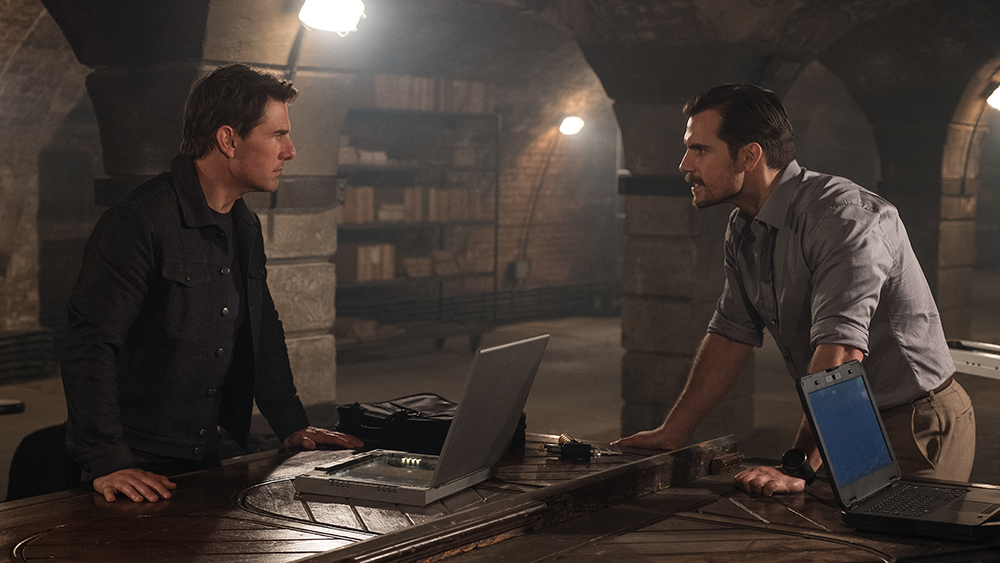
“I told you, I HATE open office plans.”
What the Mission: Impossible franchise truly values above all else is the precise art of doing your job exceptionally well.
Which means, at heart, these films are love letters to the working class, whether you make your living with your hands, your head, or your hustle.
In each movie, Hunt and his Impossible Missions Force (IMF) team must flawlessly perform a series of Herculean tasks, each of which would require years of expert training to do well. The trick is that Hunt’s team always makes it look… no, not easy. Actually, they make it look almost impossible.
But those millimeters and microseconds that separate success from failure are what set Hunt and his IMF team apart: they’re the only ones who could possibly do the jobs they do… in part because they can literally do any job. Marvel’s movies may be about superheroes finding themselves, but with his M:I franchise, Cruise offers a different take: anyone can be a superhero, if you’re willing to commit yourself to excellence, learn from your mistakes, and tirelessly work your ass off.
The Pursuit of Mastery
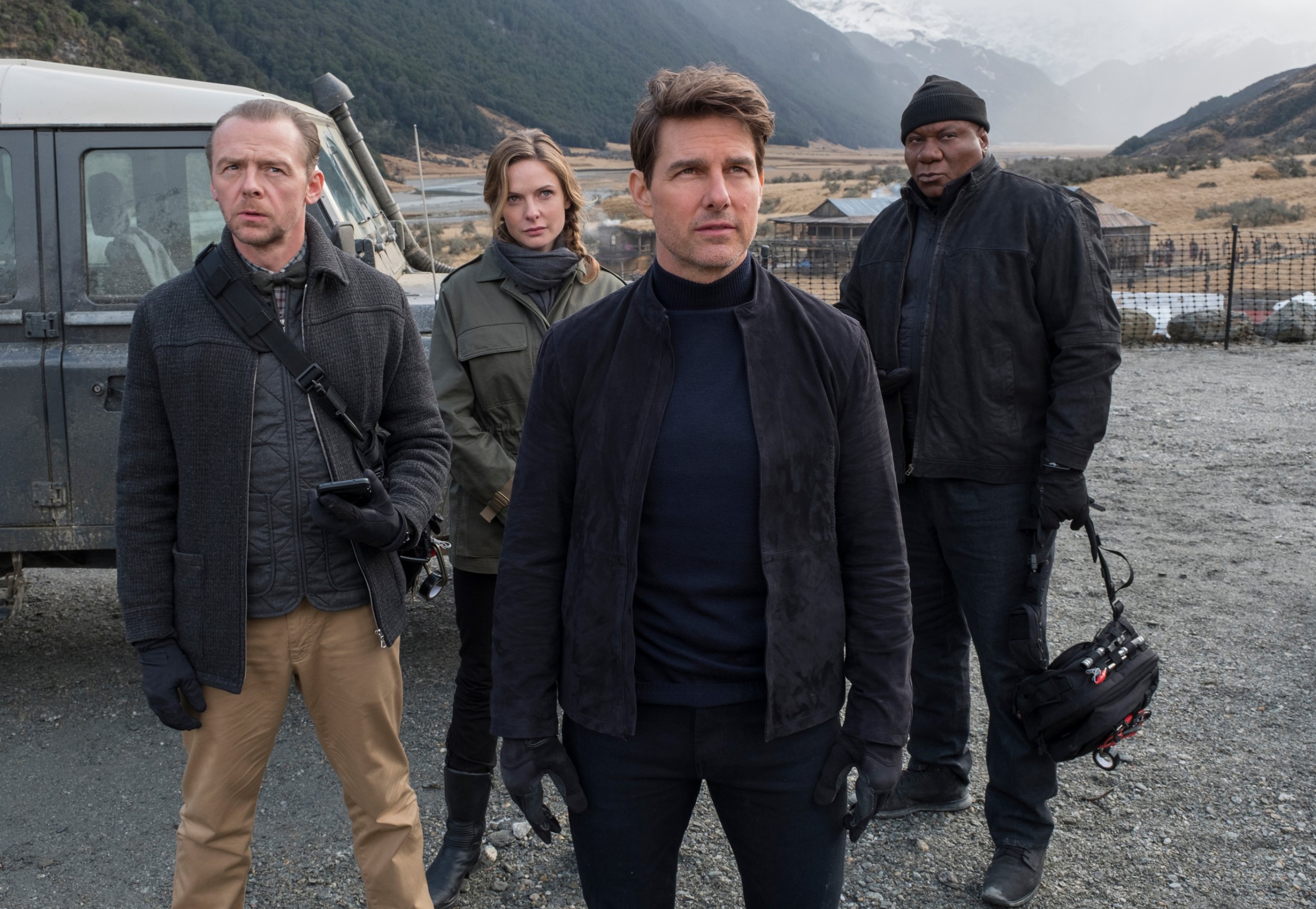
“We were told this conference had an open bar?”
I was thinking about this during one of the film’s first big setpieces, involving Wolf Blitzer, CNN, a nuclear disaster, and a rogue scientist in a hospital bed.
I won’t spoil the scene, but I will say this:
After you watch it, step back and try to imagine the logistics that would have been required to make that scene actually happen.
How many different people would have been involved, how many skills, how many phone calls, how many favors, how deep into their network and how much of their budget (who is funding them, anyway?) would the IMF crew need to dig in order to get that whole situation to work out the way they did?
The irony of this franchise is in its sleight-of-hand: it finger-waves away allllllllllll the practice and preparation that every in-movie scheme or stunt would actually require (mercifully saving us from many a montage in the process), all so the audience can simply marvel at the end result… but, at the same time, the filmmakers insist on endlessly reminding us that Tom Cruise is also doing all his own stunts.
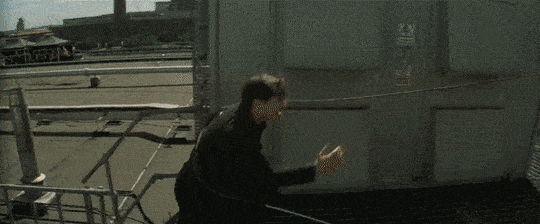
“KISS MY ASS, DWAYNE JOHNSON!!!”
Mission: Impossible is a franchise that tries to have it both ways: it wants us to be amazed by the finished product, but also to think only about the details we’re supposed to be impressed by, not the infinite leaps of faith and logic that the movie’s in-world shenanigans require.
And for six films and counting, we’ve been willing to play along. Especially because, in this era where every film seems to be shot on a greenscreen, it feels reassuring to see real people doing real stunts in real locations.
The Importance of Purpose
Granted, Fallout isn’t the only summer hit that puts work on a pedestal.
Ocean’s 8 is a feel-good celebration of being on time, at the top of your game, and a step ahead of the competition. In its own way, so is Incredibles 2, in which the Parrs are forever choking down their own egos for the sake of getting their jobs done right.
How the Villains Define the Themes of Pixar’s Incredibles Movies
In these films, doing your job isn’t just the “right” or “good” thing to do: it defines these characters to themselves and makes them whole.
But Mission: Impossible‘s fetish for work actually goes one step deeper:
Ethan Hunt is defined not just by his results, but by the fact that the world is counting on him, even if it doesn’t know who he is or what he’s doing on their behalf.
In every film, he saves countless lives from an unknowing end, and he never gets rewarded for it. He never gets to enjoy fame or public adulation. He rarely even gets a thank-you.
But he still keeps showing up because, in his mind, that’s just what you do.
This is a doubly powerful statement in our current era of political and corporate fecklessness, where our highest offices are filled with incompetent misanthropes who seem incapable of getting even the simplest things right, or doing their elected and appointed jobs with honor and decency, much less doing them well.
If movies provide audiences with a sense of escapism, then it’s no wonder Hollywood is serving up so many visions of an America where people are actually good at their jobs and want to do them.
Which brings me to my next point…
The Reverence of Duty
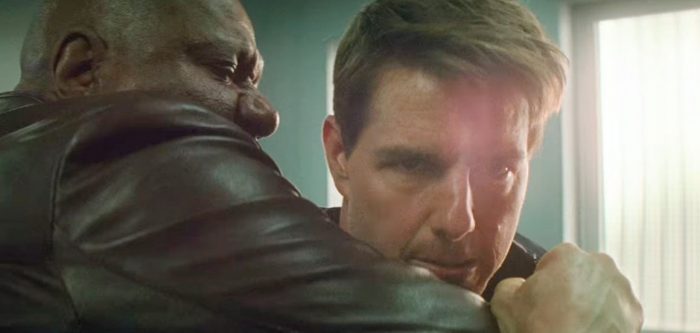
“SAY ONE MORE THING ABOUT MY OPEN OFFICE PLAN!!!!”
Around the film’s turning point, one of Ethan Hunt’s companions floats a theory: what if Hunt himself is behind all these nefarious acts?
After all, Hunt has been betrayed and abused by his own government for years. He’s seen noble ideals get corrupted, good people go undefended, and self-serving scoundrels exploit a perpetually broken system that resists every attempt to correct itself.
“At what point does a man like that decide that he’s had enough?”
But that’s the thing: to Ethan Hunt, it’s always worth it.
Other action movies try to make the stakes specific to the main character, like Dwayne Johnson battling a terrorist-filled skyscraper not because it’s the right thing to do, but because he must save his family, or Deadpool trying to save a wayward mutant not just because it’s the ethical thing to do but because it might be the karmic debt he needs to repay in order to be reunited with the love of his life.
But in Mission: Impossible, Ethan Hunt is only ever trying to do one thing:
Save everyone, all the time.
The Preservation of (Every) Life
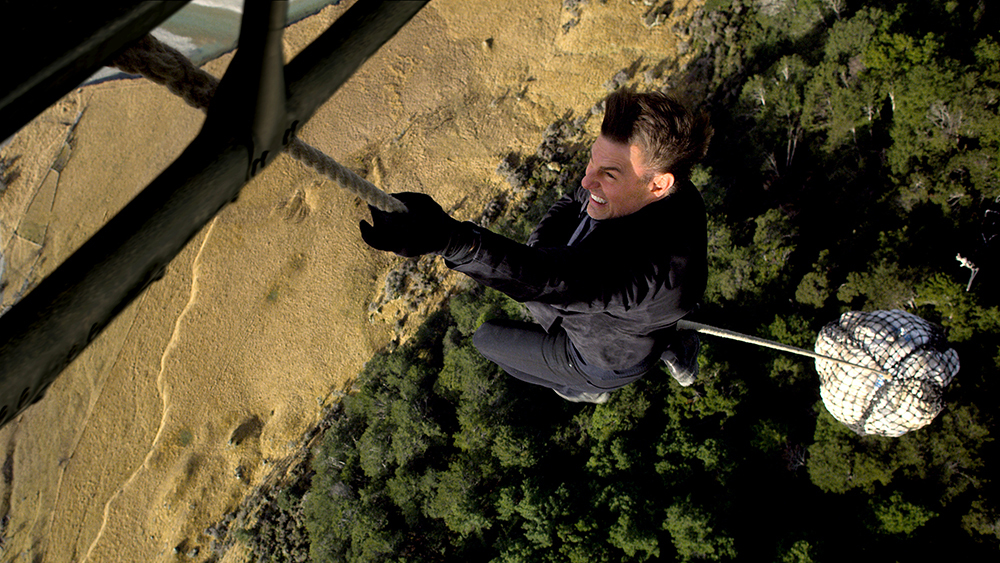
“The recycling rules at this conference are insane!”
To Ethan Hunt, it doesn’t matter if one life is at stake or millions; it’s his job to save them all.
This actually serves as Hunt’s defining (and only?) character trait: when faced with a trolley problem, Hunt won’t choose between saving one person or five; he’ll derail the train while also finding a way to save everyone aboard.
At times, Hunt’s reluctance to imperil even one innocent person can be used against him, as in Fallout, when his refusal to sacrifice one of his own team members in order to save the world sets the rest of the film’s plot in motion.
And he’ll make that same choice every time, no matter how much more risk it creates.
Because he’ll always find a way to fix it, no matter how hard it gets.
(And it will always get as difficult as the writers can possibly imagine.)
As Solomon Lane (Sean Harris) asks Hunt, in a meta-commentary on the franchise’s core concept: “‘Your mission, should you choose to accept it.’ I wonder, Ethan… did you ever choose not to?”
Of course not. If he did, innocent people would die (and we wouldn’t have a movie).
But it’s an interesting inquiry, because it gets at the heart of Hunt’s character — or what little character he actually has (more on that in a second).
Ethan Hunt will never not choose to accept a mission. Ethan Hunt does what he does not because he needs the work, but because the world needs him. Ethan Hunt is honor-bound to his sacred duty, to do whatever must be done to keep the world safe.
It’s a lofty goal. It requires immense sacrifice. It’s almost messianic.
And it’s entirely in line with the franchise’s final theme (and function)…
The Beatification of Tom Cruise

“Did I mention I do my own stu—”
Near the end of the film, one of Hunt’s companions tells him she sleeps better at night because she knows that he’s out there, keeping her safe.
That’s because Ethan Hunt — and, by extension, Tom Cruise — is the world’s guardian angel.
Does Ethan Hunt have a personality? Not really. He’s too busy being the perfect employee. He’s basically the ultimate middle manager: he does all the work, gets none of the credit, takes all the blame, and can never retire or get promoted because the whole department would fall apart.
And in that sense, Tom Cruise is almost inextricably linked to Ethan Hunt.
It’s telling that Cruise’s most famous recurring character barely has any character at all. Instead, he’s a collection of skills and stunts, an homage to relentless perfectionism, and the paramount embodiment of “we’ll figure it out as we go” adaptability — all traits of someone you’d trust and respect in real life, even if you didn’t necessarily want to hang out.
Ethan Hunt doesn’t tell off-color jokes that would make you question his morals.
Ethan Hunt doesn’t have lurid James Bondian sex with every femme fatale who crosses his path because that’s not part of the job.
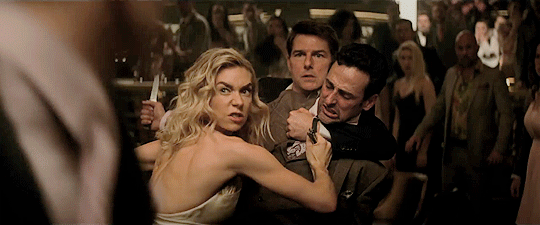
“STOP ASKING HIM ABOUT HIS OPEN OFFICE PLAN”
Ethan Hunt is just a guy trying very hard to do every part of a group project whose deadline keeps getting moved up, and he’s going to get it all done at the very last second, the whole team is going to breathe a sigh of relief, and then he’s going to collapse and take a very long nap… until the next emergency call comes in.
Because he’s never not going to accept it.
Which brings us to my biggest quibble with Mission: Impossible — Fallout:
An Elegy for Henry Cavill
Mission: Impossible — Fallout is a decent summer blockbuster. It’s well-filmed, well-acted, well-paced, and about as fulfilling as a movie comprised entirely of MacGuffins can possibly be. (As opposed to Marvel’s latest shrug-worthy MacGuffin-fest, which… whatever.)
But what Fallout isn’t is a smooth handoff to a new generation of IMF stars.
And it should have been.
Tom Cruise has been playing Ethan Hunt since 1996.
Tom Cruise is currently 56 years old.
Tom Cruise can’t do this forever.
By balancing his global superstardom on the shoulders of Ethan Hunt, Tom Cruise is trapping himself in a role that he won’t allow himself to graduate from. He either seems convinced that Mission: Impossible can’t exist without him, or he fears it actually could. I’m not sure which one worries him more, but either way, he seems dead-set on playing an action hero long after Ethan Hunt would have been forcibly retired to a desk job.
It wasn’t supposed to be this way.
Back in 2011, Mission: Impossible — Ghost Protocol was supposed to pass the IMF headlining torch from Tom Cruise’s Ethan Hunt to a new character, Jeremy Renner‘s William Brandt, but that decision was changed after the film was in production. (Reportedly, Renner turned down a cameo in Fallout in which Brandt would have gotten killed, which keeps the door open for his character to return in a future M:I movie.)
Enter: the mustachioed Henry Cavill as Hunt’s CIA rival, August Walker, in Fallout.
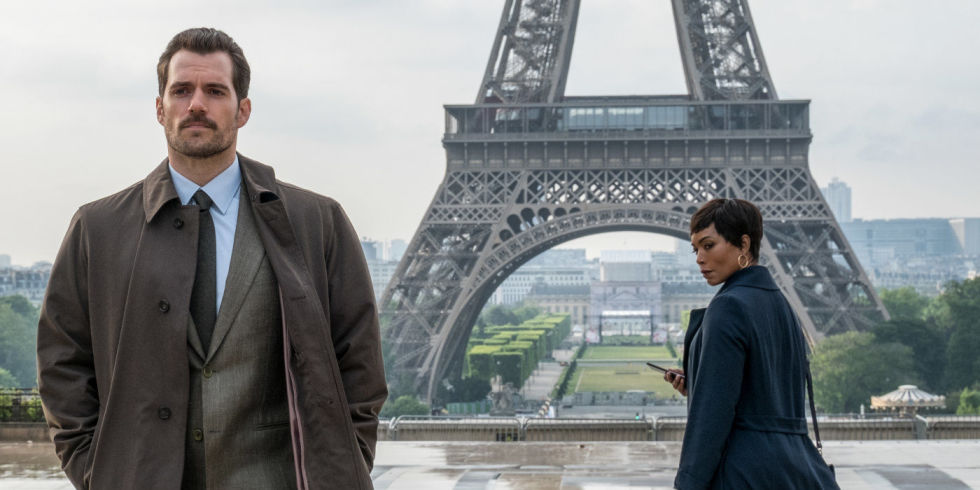
“No, I can’t do Chipotle again this week. I need to start meal planning.”
Walker is everything Hunt isn’t: bold, brash, fearless, and possibly stupid.
Throughout the movie, Walker makes questionable choices that nearly get him or Hunt killed, and which Hunt has to come up with ever-more ingenious ways to get out of, which makes for an amusing tension. But Walker also leads a charmed life. When the duo are trying to escape from a squadron of police on a pair of stashed motorcycles, Walker’s works immediately while Hunt’s almost doesn’t start because of course it would.
Walker is also built to be a bruiser, as a counterpoint to Cruise’s agility.

“No paper towels? Guess I’ll have to air dry…”
To be honest, I would have gladly watched five more movies starring August Walker as the new head of the IMF, making sledgehammer choices in situations that require a scalpel and then showcasing the ingenuity of Benji (Simon Pegg), Ilsa (Rebecca Ferguson), and Luther (Ving Rhames) as they help Walker fix the bad situation he’s just made worse.
But unfortunately we’ll never get those movies, because (SPOILER ALERT that’s basically telegraphed in this movie’s trailer and marketing materials) Walker is actually a villain.
And while he and Cruise make for an interesting onscreen contrast, Cavill’s potential here seems largely wasted. His squinty skepticism is exactly the self-aware wink that a series like Mission: Impossible is going to need once it escapes Tom Cruise’s incredibly earnest clutches. (Cavill previously tried playing this game in The Man from U.N.C.L.E., but unfortunately that movie was a complete tonal misfire.)
Will Henry Cavill ever find his career-defining franchise? (It won’t be Superman; that role subsumes everyone who plays it, and DC can’t seem to get its movie universe right.)
Will Jeremy Renner ever reclaim the headline role he was once being primed for in the Mission: Impossible franchise?
Will Tom Cruise ever allow Ethan Hunt to take a desk job?
Convincing him it would be the best possible career move, both for him and for Hunt, just might be the most impossible mission yet.
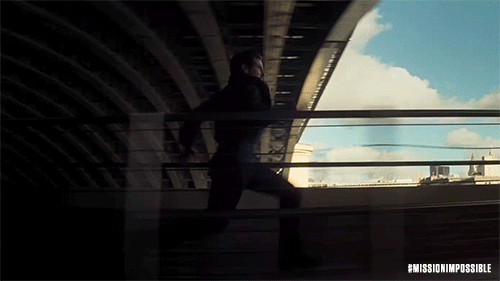
“Fine, we’ll all just work remote!”
Like This?
Share this post on Facebook or Twitter. (Sharing is caring, yo.)
Subscribe to my newsletter and you’ll never miss a new post. (I email it weekly-ish).
You may also enjoy reading what happened when I watched Mamma Mia 2 without seeing Mamma Mia 1, or why Ameican films have replaced heroes with antiheroes.
25 Reactions to Mamma Mia! Here We Go Again from a Guy Who Never Saw the Original
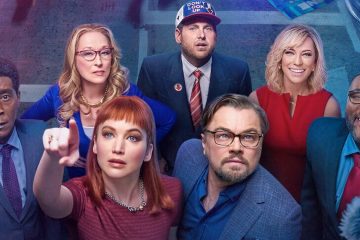

0 Comments